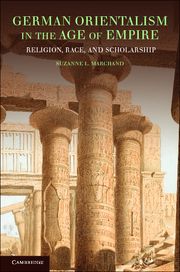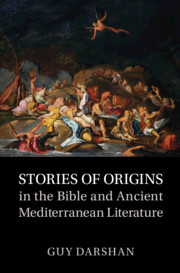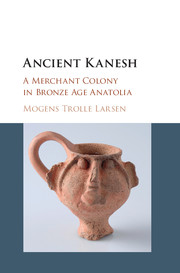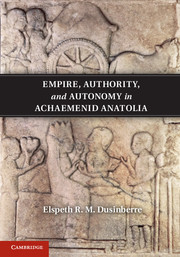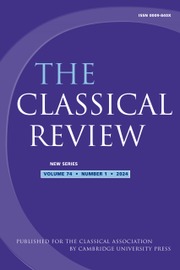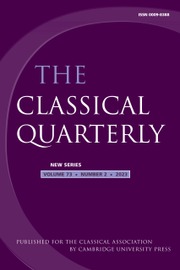German Orientalism in the Age of Empire
Nineteenth-century studies of the Orient changed European ideas and cultural institutions in more ways than we usually recognize. 'Orientalism' certainly contributed to European empire-building, but it also helped to destroy a narrow Christian-classical canon. This carefully researched book provides the first synthetic and contextualized study of German Orientalistik, a subject of special interest because German scholars were the pacesetters in oriental studies between about 1830 and 1930, despite entering the colonial race late and exiting it early. The book suggests that we must take seriously German orientalism's origins in Renaissance philology and early modern biblical exegesis and appreciate its modern development in the context of nineteenth- and early twentieth-century debates about religion and the Bible, classical schooling, and Germanic origins. In ranging across the subdisciplines of Orientalistik, German Orientalism in the Age of Empire introduces readers to a host of iconoclastic characters and forgotten debates, seeking to demonstrate both the richness of this intriguing field and its indebtedness to the cultural world in which it evolved.
- A carefully-researched and contextualised history of all the subfields of German orientalism
- Deep understanding of the theological and humanistic traditions that informed nineteenth-century ideas
- Brings to life the forgotten individuals and debates which gave the study of the Orient its modern forms
Reviews & endorsements
“Suzanne Marchand engages a major issue of modern German history with her rich, ambitious, and beautifully composed book. She offers powerful and sophisticated arguments that rest on a dazzling command of evidence. German Orientalism in the Age of Empire not only fills a huge gap; it is a bravura performance and a landmark work.” – David Blackbourn, Harvard University
“German Orientalism in the Age of Empire is intellectual history on an epic scale. Suzanne Marchand’s rich revisionist account re-creates the practices of an extraordinary branch of scholarship in vibrant detail. She traces the complex roots of modern Orientalism in Renaissance philology and early modern biblical exegesis, follows the transformation of the field in the modern university and the age of European empire, and brings the reader into direct, instructive contact with dozens of fascinating thinkers and scholars. Again and again, she challenges received truths about European thought and how it should be studied.” – Anthony Grafton, Princeton University
“Suzanne Marchand has written a dazzling work of scholarship, a tour de force as an intellectual history of modern Germany. The erudition and breadth of material presented demonstrates that Suzanne Marchand is one of the great scholars of her generation. Essential reading for students in numerous fields, including religion, biblical studies, history, Asian studies, ancient Near East studies, and philology, her book is also an extremely important contribution to the field of Jewish studies, brilliantly illuminating its rise, development, influence, and significance.” – Susannah Heschel, author of The Aryan Jesus: Christian Theologians and the Bible in Nazi Germany
“German Orientalism in the Age of Empire is that rare combination of deep research, vast erudition, and big, important ideas. By rooting Orientalism in the rich cultural soil of eighteenth- and nineteenth-century Germany, Marchand gives us a complex, nuanced, and balanced view of European attitudes toward the ‘Orient.’ This is a major contribution to our understanding of European intellectual history.” – James Sheehan, Stanford University
“Suzanne Marchand’s enormously learned, contextually rich, and conceptually complex study of the scholarly traditions and cultural practices that defined the ‘peculiarities’ of German Orientalism in the modern Imperial age finally provides a comprehensive, convincing response to questions that historians of modern Germany have been asking since the publication of Edward Said’s Orientalism more than thirty years ago. But her book does more than simply fill a gap in historical scholarship or supplement existing paradigms of analysis. Marchand’s work reframes the issue by setting the processes whereby representatives of the ‘West’ constructed their own cultural identities by appropriating and ‘othering’ the ‘Orient’ within the longue duree of Europe’s own cultural civil wars. By emphasizing the immense diversity and motivational ambivalence of German Orientalism, she has produced a story that opens the tradition to critical, reciprocal, post-Imperial appropriations.” – John Toews, University of Washington
"Marchand's book, encyclopedic in size, scope and ambititon, examines works by an overwhelming number of scholars writing between the eighteenth century and twentieth centuries..." -Susanne Kord, TLS
"Marchand's impressively well-researched and -written book offers the first comprehensive and historical study of German Orientalist scholarship. Essential." -Choice
"...an essential and engaging work that deserves to be read by all students of European intellectual history." -Erik Sidenvall, Church History
Product details
August 2010Paperback
9780521169073
562 pages
236 × 152 × 33 mm
0.75kg
Available
Table of Contents
- 1. Orientalism and the longue duree
- 2. Orientalism in a Philhellenic age
- 3. The lonely orientalists
- 4. The second oriental renaissance
- 5. The furor orientalis
- 6. Towards an oriental Christianity
- 7. On Aryans and Semites
- 8. Orientalism and imperialism
- 9. The study of oriental arts
- 10. Relations with others: the Great War and after
- Epilogue
- Bibliography.

